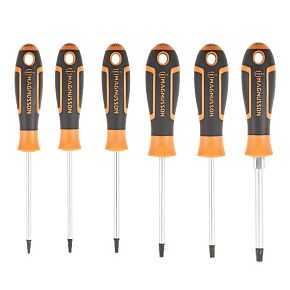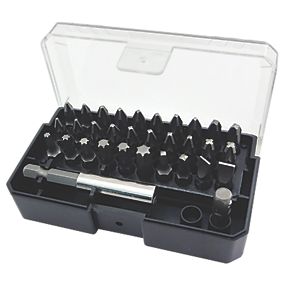Carpenter used star head spax screws to fix trad floorboards to joists.
i don't have a star screwdriver so what do I need to buy if I need to raise a board? Totally confused as not much clarity about what size these screwdriver kits are and if compatible. I don't speak the language
Do plumbers generally carry star headed screwdrivers ?
i don't have a star screwdriver so what do I need to buy if I need to raise a board? Totally confused as not much clarity about what size these screwdriver kits are and if compatible. I don't speak the language
Do plumbers generally carry star headed screwdrivers ?



